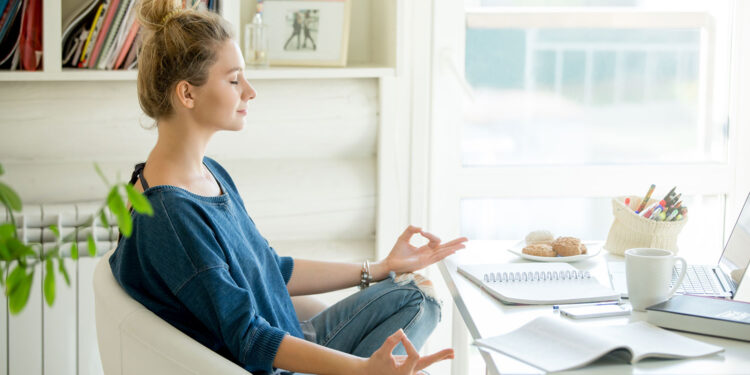Isolation, unease and lack of energy are all symptoms of a coronavirus-induced quarantine. Since most are working from home without a regular routine, access to traditional health and wellness services, and the ability to spend time with friends, good self-care practices are more important than ever.
In April, four industry experts were asked during a COVID-19 virtual roundtable how they are practicing self-care and what tips they could offer to others. The following are some of their simple self-care practices that anyone can implement at home to maintain good physical and mental health:
Stick to a Routine
The most jarring effect of the quarantine for many people was the abrupt transition from a regular routine — a morning cup of coffee, drive to work or early workout — to hardly leaving the house.
According to Art Krueger, the director of The Wave Aquatic and Fitness Center in Whitefish, Montana, establishing a new work-from-home routine is essential. “Having a schedule is huge,” he said. “As soon as the proverbial carpet got pulled out from under me, I had to really be self-disciplined and get back into a routine.”
While a new work setting can throw off your rhythm at first, you’ll find there are still plenty of things you can control — such as your home office setup, workout schedule or communication with coworkers — to eliminate distractions, help you refocus, and make working from home feel more like a traditional work environment.
It’s also important to get your family accustomed to your daily routine, especially if you have young children at home.
“I learned the hard way that while working from home, my family didn’t understand when they could interrupt me and what I was doing throughout the day,” explained Chris Tointon, the president and CEO of the YMCA of Greater Omaha in Omaha, Nebraska. “They didn’t quite understand there are times I need to walk away and refocus.”
In Tointon’s experience, establishing clear expectations will help prevent future distractions. “After two weeks I talked with my family and shared my expectations, how I’m going to be at work, and when I’m done with work, what I’ll do so they know I’m done and we can hang as a family,” he said.
Socialize
Socialization is critical for mental and emotional health, as well as one of the most important self-care practices. You can call a friend or send someone a text, and services like Zoom and Google Hangouts have made virtual mass gatherings easier than ever.
“Be intentional about reaching out to people,” advised Todd Rockoff, the president and CEO of the Tucson JCC in Tucson, Arizona. “In the normal, busy time, I don’t normally reach out to friends with the same regularity, but now I find myself making more time to text someone and ask how they’re doing.”
In fact, the simple act of texting someone to see how they’re doing can lead to more regular conversations — opportunities for healthy socialization.
“It’s about not feeling isolated and reaching out to talk about things other than this deep, intense workload we’re all doing right now,” said Rockoff. “Giving yourself that time to socialize outside of work, as you can, is really important.”
Exercise
Staying in your home and away from other people doesn’t mean you have to sit around all day. Without reasons to regularly leave the house and get active, it’s easy to let your fitness routines fall by the wayside.
“We’ve never had more virtual options than we do now, so there’s no excuse for why someone shouldn’t be working out right now,” said Carrie Ohorodnyk, the executive director of the Rose E. Schneider Family YMCA in Cranberry Township, Pennsylvania. “With all the virtual options available, try something new.”
Outside the virtual classes your own organization offers, there are countless companies in the fitness industry also delivering at-home workouts and other resources.
Find a workout you like or would like to try, and get moving. “I’m not a group exercise person, but I’ve tried some classes at home that I never would’ve tried in front of people, which I’ve enjoyed doing,” shared Ohorodnyk.
Do Something for Yourself
In such a crazy time, it’s easy to get lost in your work and serving others. One of the easiest and most beneficial self-care practices is to set aside time for yourself.
“I pick one thing every day to do that’s just for me,” said Tointon. “That could be as simple as watching an episode of a quick 20-minute show, or going on a walk. I’ve made a commitment to walk almost three miles a day — now I’ve got some time to reflect on the day and be alone. Doing something just for me has been really vital.”
Choosing just one of the self-care practices above will benefit you while you’re navigating this challenging time. No matter what form they take, self-care practices will be crucial for your mental and emotional health moving forward.
Bobby is the former editor of Community Rec Magazine.










